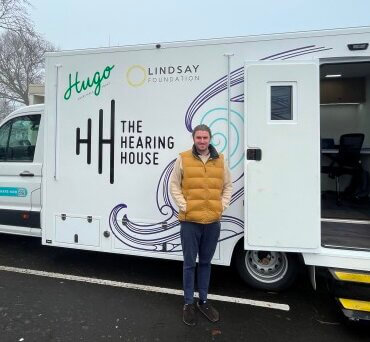
Nick Jones
Audiologist Nick Jones provided a most welcome message for parents when he visited Cambridge in a mobile clinic this week.
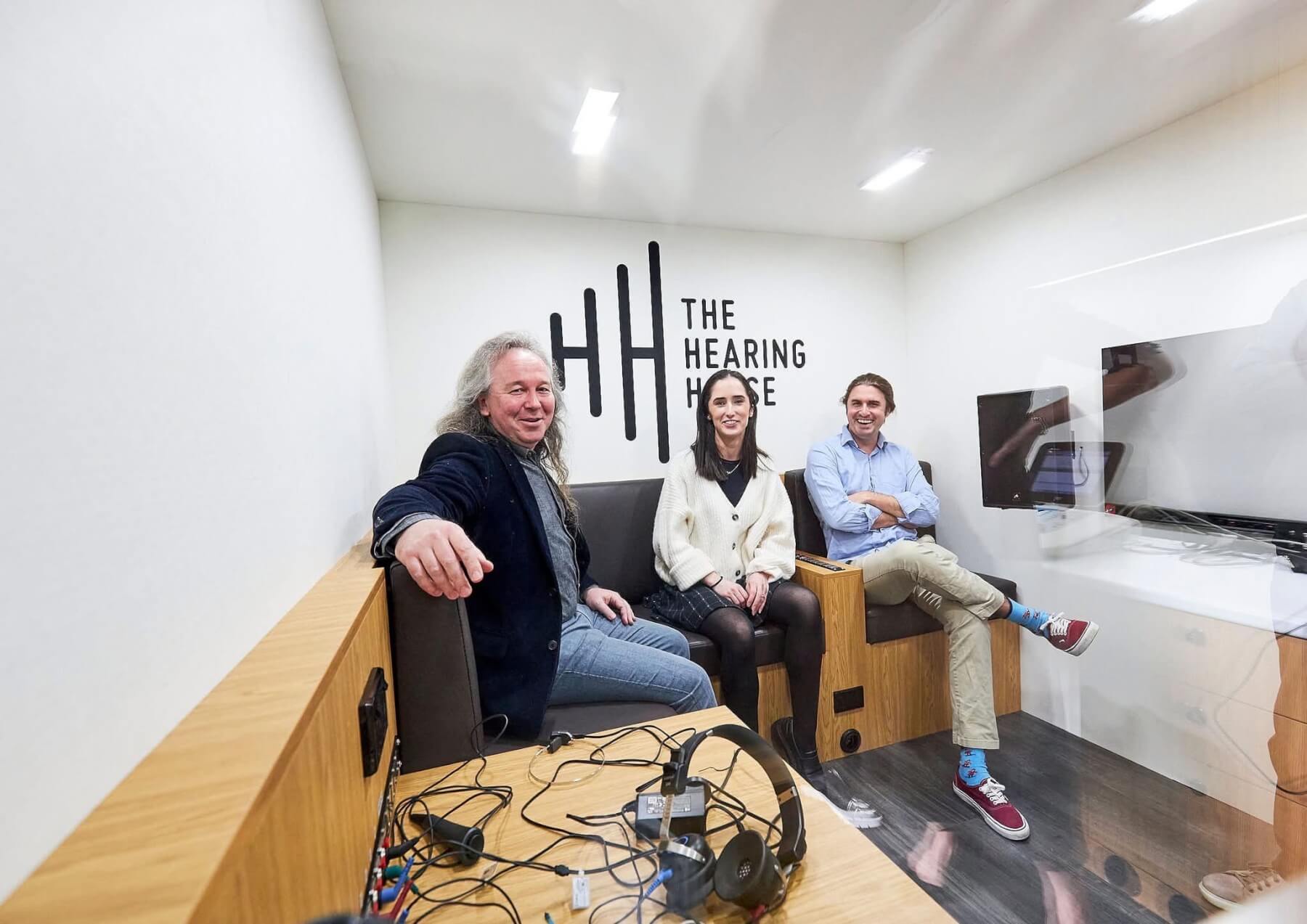
Inside The Hearing House mobile unit. From left: Dr David Welch (board member) and audiologists Bri Putnam and Nick Jones
“Parents have a lot of fears and uncertainty if their child has hearing problems, including how they’re going to live in the real world when they’re older,” he told The News. “So, it’s great to be able to assure them that it’s all going to be fine and their children can go on to do anything they like.
He should know – he was diagnosed as profoundly deaf in his infancy, The now 33-year old was fitted with a Cochlear implant as an infant.
Now an audiologist for The Hearing House, he has been providing hearing checks through a mobile clinic in Cambridge and Ōtorohanga this week.
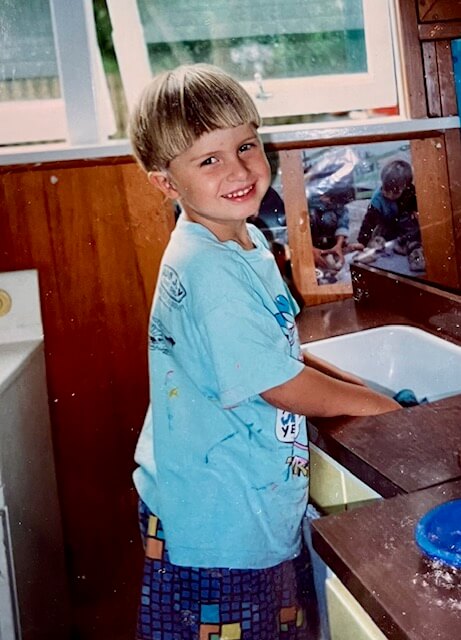
Nick Jones (aged three) soon after receiving his implant
“Giving back what I was given, knowing that I’m making a big difference in people’s lives, is so rewarding.”
Launched in September, The Hearing House mobile unit is a purpose-built hearing lab on wheels.
“It’s like a campervan but inside it’s soundproofed, we have two clinicians and all the equipment we need including a testing booth. We can reach out to people who can’t make it up to Auckland.”
With internal and external components, Cochlear implants (CI) bypass parts of the inner ear, stimulating the auditory nerve with electrical signals. They improve hearing in most cases, Nick said.
“Sometimes they’re not recommended but if people are medically suitable then there’s no reason why not. Hearing can improve significantly after an implant for 99 per cent of the people we see.”
Even with a CI, there are challenges.
“The CI has helped me, but it doesn’t mean my hearing is perfect – there are still instances when I struggle to hear, if there’s background noise or a big group of people, for example,” Nick said.
But help is available.
“I was lucky to have one-on-one support from Anna McKey, a teacher aide at Ōtorohanga South School. She’s a compassionate and intelligent lady who made sure I was up to speed with my learning. Receiving her support throughout my early years was invaluable.”
Another Ōtorohanga South School teacher has been in Nick’s corner even longer. It’s his mum Barbara.
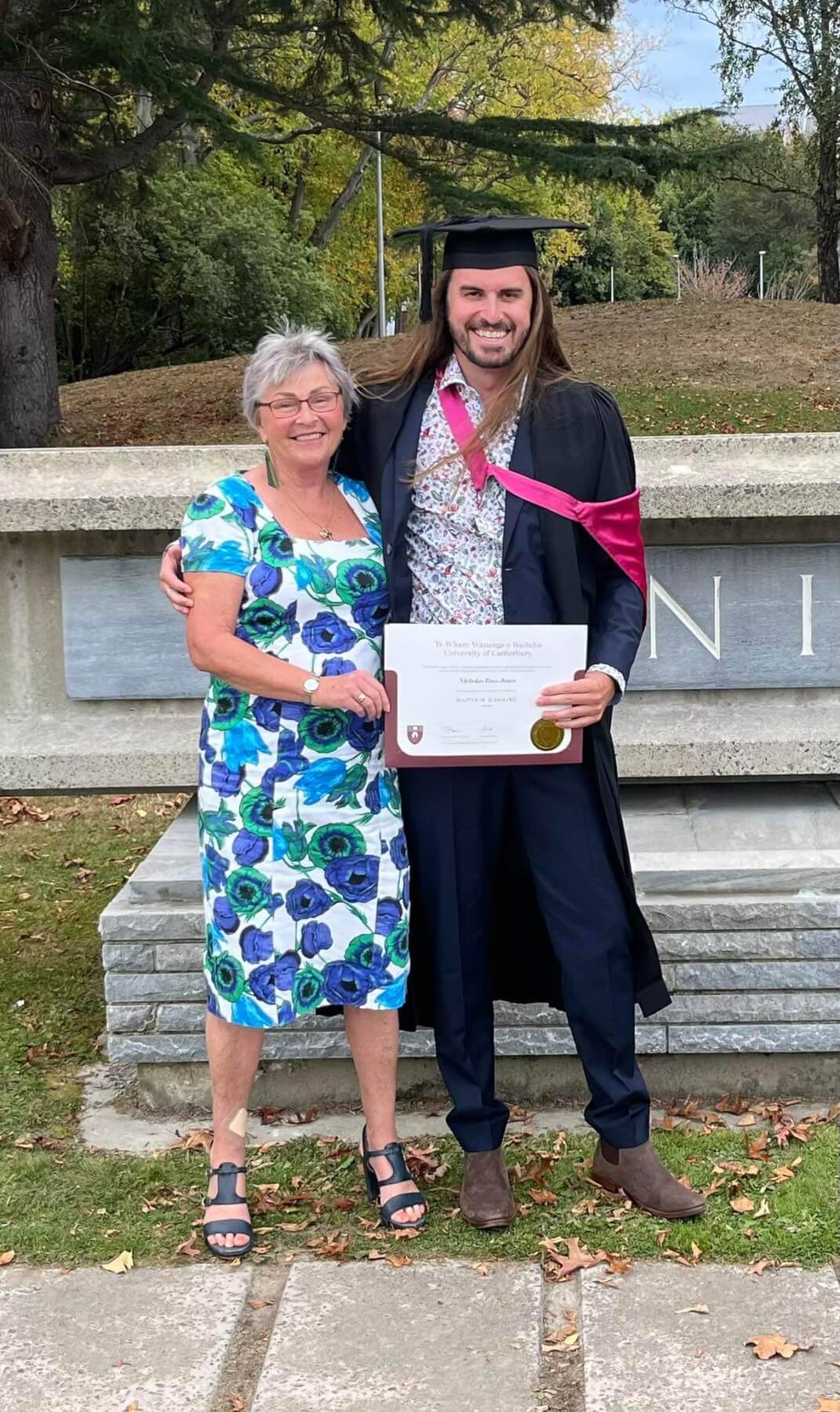
Nick Jones’ graduation – Nick (right) with his proud mum, Barbara, receives his Masters of Audiology
Initially, Nick’s family did not notice the warning signs, Barbara said.
“He was such a switched on kid, good at responding to visual and vibration cues, so we didn’t pick up on it at first. Then, John, my father-in-law, said he thought there might be something wrong – we’re so grateful to him for that.”
Implants can be fitted on children aged as young as six months. As the technology was new when Nick was diagnosed, Barbara was advised to wait and try communicating with her son using sign language first.
“When we started signing to him, it was like a dam broke. He was so eager to communicate, but I was like the interpreter between him and the world, so it wasn’t ideal.”
Aged three, Nick became one of the first children born deaf in New Zealand to receive an implant. Since then, Barbara said her son has been an inspiration.
“It’s made a huge difference in his life,” she said. “Having experienced the shock of being told my child had profound hearing loss, I know how reassuring Nick’s story and his work must be for other parents. I’m so proud of him.”
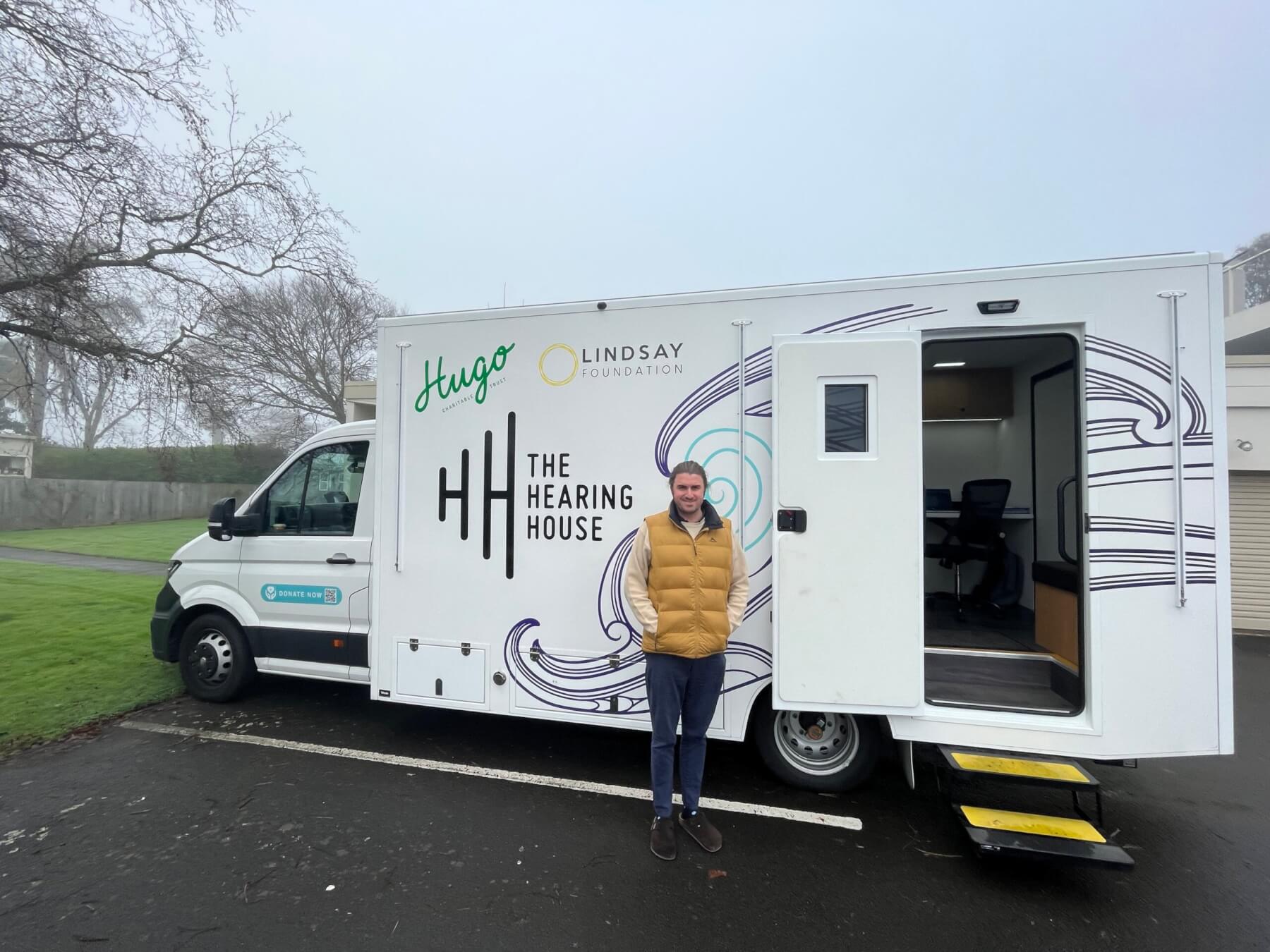
The Hearing House mobile unit – Nick Jones prepares for a clinic in Cambridge








